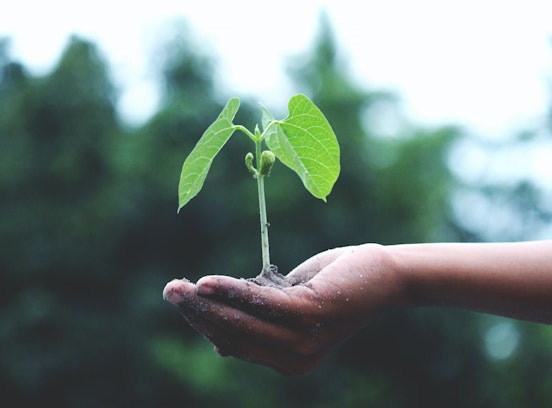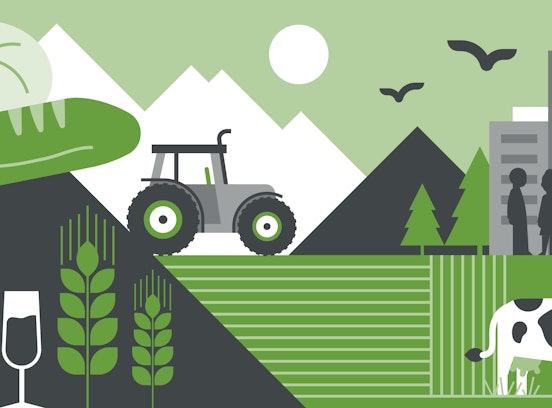NEST Part 1
Sustainable Food System South Tyrol Part 1
- Project duration: -
- Project status: finished
- Funding: Provincial P.-L.P. 14. Research projects (Province BZ funding /Project)
- Total project budget: €54,995.00
- Institute: Institute for Regional Development
The study aims to increase the share of regional, organic and fair food in South Tyrolean restaurants through a regional circular approach. For this purpose, we develop implementation-oriented measures in coordination with the relevant actors. These include recommendations for action at the legal, logistical, and administrative levels. In a practical and application-oriented pilot project, we apply these recommendations to the entire value-added cycle from the field to the plate of South Tyrol's restaurants. To keep the ecological footprint as small as possible, we design accompanying concepts to counteract the loss and waste of food, or to reuse food leftovers.
The project approach examines the availability of regional food, logistical bottlenecks, questions of competitiveness and externalised costs. Selected case studies will be used to show under which conditions the most sustainable food supply, and resource-saving food use is possible in South Tyrolean restaurants. Key topics are the social and economic needs of the actors, true costs, and the relationship between the individual participants. Within the framework of a sustainable food system, out-of-home consumption with its up and downstream product cycles will be examined according to local, ecological, and fair criteria. These criteria will determine a pattern according to which South Tyrol's restaurants can become fair and socio-ecological. For this the interaction between agriculture, gastronomy and all actors along the value chain must be coordinated and optimised in terms of a circular economy. The food sector is increasingly perceived as a field where the environmental balance can be improved. The issues of food security, specific quality (organic, residue-free, etc.), and local availability also play a decisive role. Accompanying measures to raise awareness among all parties concerned are very important to ensure a successful implementation of a sustainable food system. These include corresponding recommendations for action for political decisions and administrative procedures.
Kick-off meeting 24 giugno 2022
La gastronomia altoatesina dovrebbe diventare più regionale, ecologica ed equa. Si è parlato proprio di questo durante il lancio del progetto NEST, un incontro al quale hanno partecipato numerosi stakeholder del settore gastronomico, agricolo e logistico. L`evento si è svolto il 24 giugno 2022, presso il Palazzo Widmann a Bolzano.
L'evento è stato introdotto dal Presidente della Provincia Autonoma di Bolzano, Arno Kompatscher, con un discorso in cui ha sottolineato che il progetto NEST gli sta molto a cuore. Di alimentazione sostenibile in gastronomia si parla da tempo, e questo processo deve ora essere strutturato, ha spegato Kompatscher. Felix Hartmann, dell'Istituto per lo sviluppo regionale di Eurac Research, ha poi presentato gli aspetti centrali di NEST e le fasi di realizzazione del progetto. Attualmente il team di Eurac sta lavorando alla prima fase del progetto che consiste nell'elaborazione dei criteri per un sistema alimentare sostenibile e in un'indagine sulla situazione attuale del consumo e dell'utilizzo degli alimenti in Alto Adige. La presentazione di Eurac è stata seguita da un intervento sul tema "Regionalizzazione delle reti alimentari" da parte del professore dell'Università di Innsbruck Markus Schermer. In Baviera esiste già una rete tra ristoratori e agricoltori: si tratta della piattaforma "Wirt sucht Bauer" (oste cerca contadino), che permette di fare incontrare la domanda e l´offerta di prodotti regionali. Infine, l´ultima presentazione è stata quella della start-up altoatesina di logistica SLON.
In seguito i partecipanti hanno avuto modo di presentarsi e di condividere le proprie aspettative rispetto al progetto NEST. Sono stati sollevati diversi punti, come l'aumento della sostenibilità senza rinunciare al comfort per gli ospiti, la volontà degli agricoltori ad assumersi maggiori rischi e la loro disponibilità a passare ad altri tipi di colture affidandosi alle reti esistenti nel campo della distribuzione e della logistica.
Hoffmann C, Streifeneder T (2021)
Newspaper
Südtiroler Wirtschaftszeitung
Hoffmann C (2021)
Presentation/Speech
Conference: Nachhaltige Ernährung| Lokale Strategien & Projekte | Bolzano : 22.7.2021 - 22.7.2021
More information: https://www.youtube.com/watch?v=YqHRx2Dvfd0



